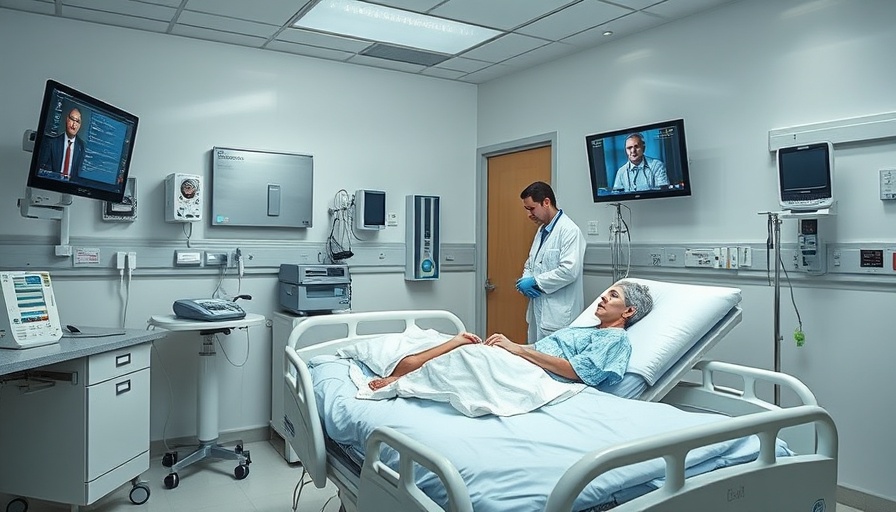
Why Acute Specialty Telemedicine is a Game Changer for Hospitals
In an evolving healthcare landscape, hospitals are transitioning from traditional inpatient care to enhancing outpatient capabilities. This shift is not just a trend; it is a necessity driven by the increasing complexity of patient needs and the financial pressures facing healthcare systems. Efficiently managing the growing population of high-acuity patients through acute specialty telemedicine is emerging as a pivotal strategy to improve care quality and financial sustainability.
The Growing Demand for Specialized Care
As reported by the American Hospital Association, the inpatient acuity levels are projected to rise by 3% from 2019 to 2024, unveiling a pressing demand for specialized medical services. The rise in chronic diseases among the aging population means that hospitals need to adapt their services to accommodate patients with complex, acute conditions swiftly. Failing to do so could lead hospitals to face severe financial repercussions, as those unable to manage this shift might find their patient flows dwindling.
How Telemedicine Bridges the Gap
Acute specialty telemedicine solutions allow hospitals to leverage technology to connect with specialists across various fields, including neurology, cardiology, and psychiatric care. This capability ensures that patients receive timely and coordinated care, particularly in emergencies. A case in point is a hospital that enhanced its behavioral health services significantly, reducing patient length-of-stay by an average of 12 hours through virtual consultations. Such improvements not only enhance patient outcomes but also save hospitals substantial costs, such as boarding expenses.
Best Practices for Maximizing Telemedicine Benefits
Implementing an effective telemedicine program involves some strategic approaches for hospitals. First, integrating a user-friendly telemedicine platform can streamline access to multiple specialties, enabling faster decisions on treatment plans. Additionally, hospitals should engage in consistent training for in-house teams to work synergistically with remote specialists to handle complex cases adeptly. Regular analytics and performance assessments can help in refining the service delivery model and ensuring that patient care standards remain high.
Looking Forward: Why Every Hospital Should Consider Telemedicine
Given the trajectory of healthcare evolution, adopting acute specialty telemedicine is not just advantageous but essential for hospitals looking to thrive amidst rising patient acuity and financial constraints. As patient demands grow, the capacity to provide prompt, effective care through telemedicine will differentiate progressive healthcare systems. With continued advancements in technology and clinical practice, telemedicine is poised to reshape how hospitals operate, making them more resilient in the face of future challenges.
 Add Row
Add Row  Add
Add 


Write A Comment